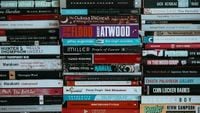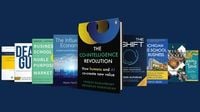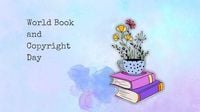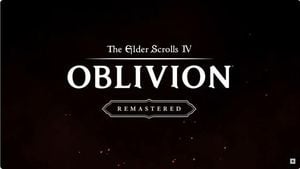As the world gears up to celebrate World Book Day on April 23, 2025, a wave of excitement surrounds the literary contributions of Michigan Ross alumni. This year, the celebration not only highlights the joy of reading but also emphasizes the transformative power of books in connecting generations and preserving cultural heritage.
World Book Day, established by UNESCO in 1995, is a global observance that encourages reading and promotes accessibility to literature across all genres. It marks the anniversary of the deaths of literary giants such as William Shakespeare, Miguel de Cervantes, and Inca Garcilaso de la Vega, making it a fitting tribute to authors whose works have shaped the world.
In recognition of this special day, we’ve compiled a list of must-read books authored by Michigan Ross alumni, showcasing their diverse contributions to literature. From insightful nonfiction to enchanting children’s stories, these works reflect the unique perspectives and experiences of their authors.
One standout title is "The Shift: How Digital Innovation is Irreversibly Transforming Gastroenterology and Healthcare" by Praveen Suthrum, MBA ’04. This nonfiction book delves into the radical changes digital innovation is bringing to healthcare, particularly in gastroenterology. Suthrum explores how artificial intelligence and other technologies are revolutionizing patient care and challenges readers to rethink their approach to healthcare.
For younger audiences, Patrice Gopo, MBA/MPP ’07, presents "Ripening Time," a charming children’s book that celebrates the joy of sharing food and family memories. Through a poetic narrative, Gopo captures the essence of waiting for fried plantains, illustrating how food can create lasting connections across generations.
Another notable work is "Michigan Ross School of Business: A Century of Stories Celebrating the 'Leaders and Best'" by George John Siedel, JD ’70. This nonfiction history book chronicles the evolution of the Michigan Ross School of Business from its inception with just 22 students in 1924 to its current status as a world-class institution. Siedel highlights the legendary faculty members who have made significant contributions to the field of business education.
Alan Gelband, BBA ’65/MBA ’67, shares his life story in "Deal Guy: The Life and Adventures of Alan Gelband." Co-authored with Michelle Miller, this autobiography recounts Gelband’s diverse career as an investment banker, rock band manager, and self-help greeting card guru, offering readers a humorous and insightful glimpse into his journey.
Scott Douglas Halm, MBA ’79, takes readers on a visual tour of America’s state capitols in "A Capital Journey." This photography collection intertwines personal stories with historical and architectural insights, showcasing Halm’s 35-year quest to photograph all 50 state capitol buildings.
In "The Great Recession Resurrection: How I Brought My Career Back to Life and Tips to Navigate Unemployment During a Down Economy," Omurhu U. Onokpise, MBA ’07, shares his journey of overcoming unemployment challenges. The book provides practical advice for professionals seeking to navigate difficult economic times and achieve their career aspirations.
Joe Sipher, BA ’86/MBA '93, offers a roadmap for personal and professional growth in "Outsmart the Learning Curve: How Ordinary People Can Achieve Extraordinary Success." This nonfiction book empowers readers to overcome obstacles and rapidly acquire new skills, regardless of their stage in life.
For aspiring young entrepreneurs, "The Startup Squad: You're the Boss" by Brian Weisfeld, BBA ’90, and Bonnie Bader serves as an ultimate guide. This book encourages children to explore their business ideas, providing practical tips on how to start and manage a venture.
In the realm of technology, "The Co-Intelligence Revolution: How Humans and AI Co-Create New Value" by Venkat Ramaswamy and Krishnan Narayanan discusses the future of collaboration between human intelligence and artificial intelligence. The authors present a visionary roadmap for harnessing AI to enhance human experiences and innovations.
David Hess, an expert in business law, provides insights into compliance programs in "Advanced Introduction to Corporate Compliance." This nonfiction work outlines key features of compliance programs and their importance in fostering ethical corporate cultures.
Andrew Hoffman’s "Business School and the Noble Purpose of the Market" critiques shareholder capitalism and presents a framework for reforming business education to better serve society’s needs. This book aims to equip future leaders with the tools to rethink capitalism and its role in a sustainable future.
Maxim Sytch’s "The Influence Economy: Decoding Supplier-Induced Demand" explores the factors that shape consumer decisions and the impact of professional services on unnecessary demand. Sytch’s analysis reveals the potential pitfalls of supplier-induced demand and its consequences for organizations.
As we celebrate World Book Day, it is essential to recognize the efforts of authors like these, who contribute not only to the literary landscape but also to the broader discourse on social issues, innovation, and personal growth. Their works not only entertain but also inspire readers to think critically about the world around them.
Moreover, World Book Day serves as a reminder of the importance of literacy and access to books for all. It encourages communities to embrace reading as a means of education, empowerment, and connection.
This year, UNESCO has also named Rio de Janeiro the World Book Capital for 2025, highlighting the city’s commitment to promoting literacy and literary culture. Under the theme “Affecting Social Change Through Literacy,” Rio’s World Book Capital program will implement inclusive initiatives, including mobile libraries and literary festivals, aimed at ensuring that books are accessible to everyone.
As we reflect on the significance of World Book Day, let us celebrate the written word and its ability to connect us across cultures and generations. Whether through reading, writing, or engaging in discussions about literature, we can all contribute to fostering a love for books and the joy of storytelling.









